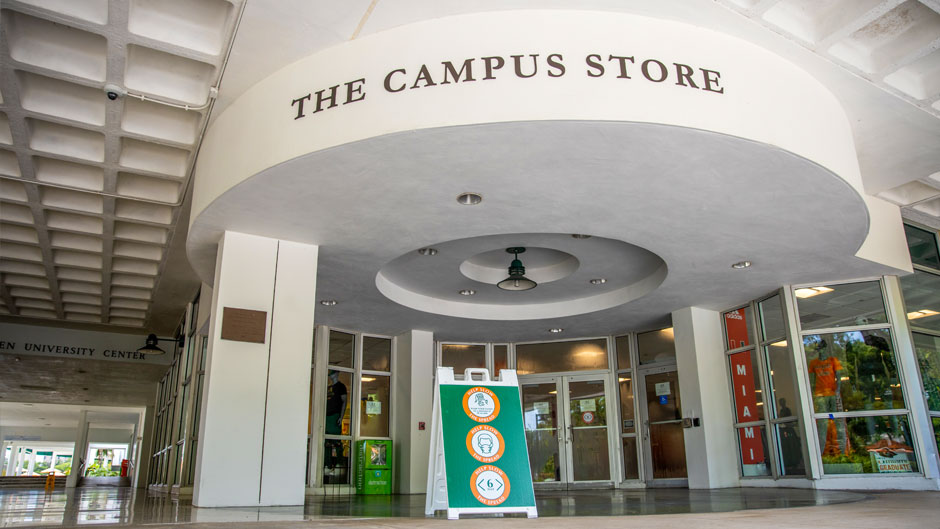Through a new round-up program initiated by senior Cameron Markovsky, the University of Miami community and Campus Store patrons can provide direct financial assistance to the CommUnity Garden, located near Hecht Residential College, and the University of Miami Food Pantry, which is in the Whitten University Center.
Launched on Nov. 15—World Recycling Day—whenever an in-person purchase is made at the Campus Store, customers will be given the option to round up their total to the nearest dollar and donate the difference to aid both initiatives. The current garden is set to be relocated as part of a campus planning project.
“The round-up program is officially launched and will continue throughout the entire next semester,” said Markovsky, who is studying sport administration with a minor in sustainable business. “The hope is that it will continue beyond then for years to come.”
Markovsky’s idea to create the program was inspired by his recent capstone project in lecturer Daniel Hick’s economics course. During the course, Markovsky worked closely with Ana Alvarez, executive director of auxiliary services, and Sergio Madrigal, operations manager for Follett, a company that supplies products to the Campus Store. They developed partnerships between campus organizations, which include UThrift, Orange Umbrella, and 4Ocean, to make the Campus Store more sustainable.
Continuing to build on the partnerships created, Markovsky enrolled in an independent study project to see the plan through until graduation. He wanted to ensure that the program was successful, and that students were able to largely benefit from the contributions.
“The money will allow [the CommUnity Garden] to continue producing crops throughout this transition of relocation and expand their production capacity,” said Markovsky. “It will also allow the club to produce fruits, vegetables, and herbs that will be donated to the pantry for students to have fresh, free products grown on campus. The food produced will also be used for educational purposes.”
The Community Pantry was put in place by the Student Government ECO Agency this fall and has recently documented an uptick in student use, Markovsky noted.
“All students are able to access the food pantry, free of cost,” he said. “The idea of this round-up program is to benefit these two initiatives on campus; so, they can continue to have an impact on the students while also being inclusive to all.”

